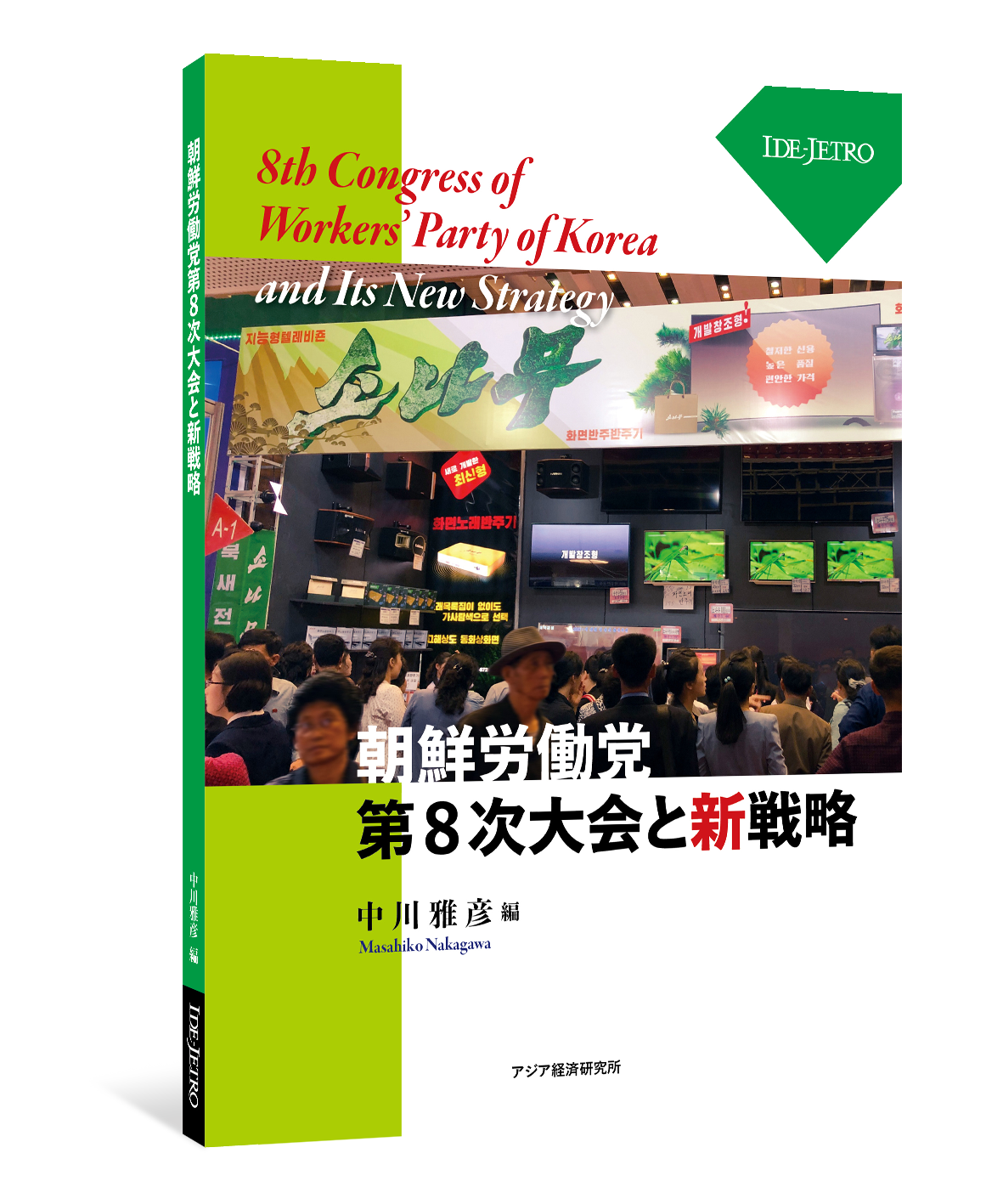Japanese eBooks
eBook

8th Congress of Workers' Party of Korea and Its New Strategy
Download eBook for free
Available in EPUB and PDF format for full book. EPUB files can be opened in eBook readers.
Buy the print-on-demand book
About this book
About this book
Ten years have passed since the start of the Kim Jong-un regime in the Democratic People's Republic of Korea. As the final product of the study group on the eighth congress of Workers' Party of Korea and its new strategy—a study group within the Institute of Developing Economies—this book sheds light on the characteristics of economic reforms and foreign policies over the ten years under the Kim Jong-un regime and discusses future developments. Though the study group initially planned to analyze the situation surrounding the eighth congress, the study group faced unprecedented difficulties in gathering information, such as the fact that the full text of a project summary report was not published after the eighth congress. The study group therefore focused on gathering fragments of facts, such as those contained in official reports, actual measures taken, and descriptions of local research papers, as well as on deducing policy intentions and directions from those facts.
Contents
Preface
Introduction Policy Continuity and Changes during the Kim Jong-un Era
Author:Masahiko Nakagawa
Chapter 1 The Changing Approach to the Selection of High-Ranking Officials
Author:Masahiko Nakagawa
Chapter 2 Economic Plans without Numerical Targets
Author:Masahiko Nakagawa
Chapter 3 The Process of Establishing a New Company Management System and Examples of Its Implementation
Author:Pak Jaehoon
Chapter 4 The Enactment of the Central Bank Law and the Commercial Bank Law and Changes in the Financial System
Author:Moon Ho-il
Chapter 5 Deterrence Policy toward the United States and US-North Korea Diplomacy
Author:Satoru Miyamoto
Preface
Preface
This book is a product of the study group on the eighth congress of Workers' Party of Korea and its new strategy—a study group conducting basic comprehensive research at the Institute of Developing Economies in 2021. Focusing on economic reforms and nuclear strategies, the study group analyzed situations involving the politics, economy, and foreign relations of the Democratic People's Republic of Korea since the beginning of the Kim Jong-un era.
Situational analysis in essence starts with organizing information obtained from field research, local news reports and publications, and interviews with visitors to the area/country under consideration. However, opportunities for a Japanese public agency to conduct field research in North Korea is hopelessly limited unless the relationship between Japan and North Korea improves. Also, information obtainable from official reports and publications from Pyongyang is limited, and, in particular, releases of economic indicators are scarce. Consequently, researchers analyzing the situation in this country are often forced to significantly change the topic or content of their research according to the amount of materials collected.
The closure of the North Korean border due to the COVID-19 pandemic since early 2020 has also made it difficult to obtain publications from Pyongyang and information from visitors to the country. In addition, the amount of information disclosed in connection with the eighth congress of Workers' Party of Korea held in early 2021 was unprecedentedly minuscule as the full text of a project summary report and other materials were not published. Information related to the eighth congress was too scarce to conduct the relevant situational analysis that the study group initially planned. The study group therefore decided to expand the scope of the analysis to include the past decade of the Kim Jong-un regime, and to discuss the eighth congress in that context. The focus of the analysis was placed on identifying changes in political and economic policies that had emerged since the beginning of the Kim Jong-un era.
Sources of information in every chapter of this book (written in Japanese) were mainly materials written in Korean. These materials are listed in the references section, but the reference information is not presented in Korean. The reasons for this are that reference information written in Korean is meaningless to non-Korean-speaking readers; that reference information written in Japanese allows the target readers to know when, where, and in what language the relevant material was written; and that Korean-speaking readers can find source materials based on reference information written in Japanese as the Japanese and Korean languages share commonalities in word order and the use of Chinese characters.
Masahiko Nakagawa, Editor
February 2023


